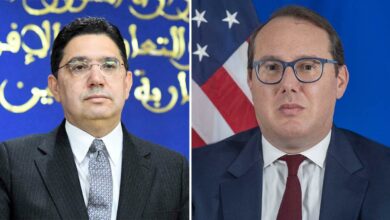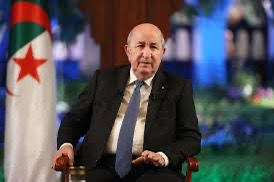Senior British MP: Morocco’s Autonomy Plan Is the Realistic Solution to the Sahara Conflict, and the Suffering of Refugees in Tindouf Cannot Be Ignored
Senior British MP: Morocco’s Autonomy Plan Is the Realistic Solution to the Sahara Conflict, and the Suffering of Refugees in Tindouf Cannot Be Ignored
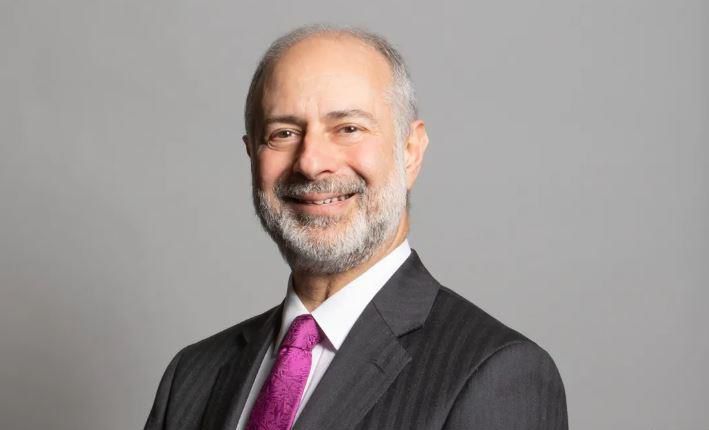
ALDAR/
British MP Fabian Hamilton, a member of the Labour Party and representative for Leeds North East, has openly voiced his support for Morocco’s Autonomy Plan, describing it as the most realistic option to resolve the long-standing conflict that has caused significant human suffering, particularly in the Tindouf refugee camps in Algeria.
Writing in an opinion piece published on Politics.co.uk, Hamilton stated that recognizing the Autonomy Initiative is not only a shift in British foreign policy, but also a moral and humanitarian stance aligned with the values underpinning the UK’s foreign policy—values that place ending human suffering at the core of its priorities.
He pointed out that the autonomy plan offers the people of Morocco’s Sahara region broad powers to manage their local affairs within the framework of Moroccan sovereignty. It also paves the way for development and shared prosperity, making it a practical foundation for building peace and fostering regional stability.
Hamilton, who co-chairs the UK-Morocco Parliamentary Friendship Group, emphasized that the UK’s decision to support Morocco’s proposal followed a thorough assessment of the political and humanitarian realities on the ground. He stressed that neutrality is no longer viable in the face of the dire conditions endured by thousands of Sahrawi refugees in Tindouf, where basic standards of human dignity and international oversight are glaringly absent.
He added that the continued support of certain regional actors—clearly referring to Algeria—for the so-called “Polisario Front” only serves to prolong the conflict and perpetuate the suffering of thousands of families who have become hostages to political disputes.
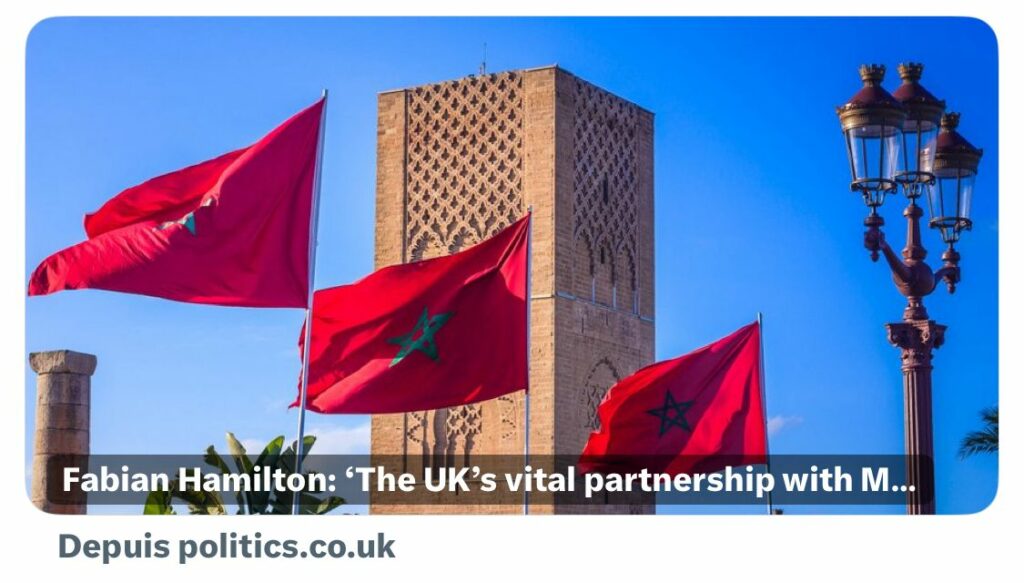
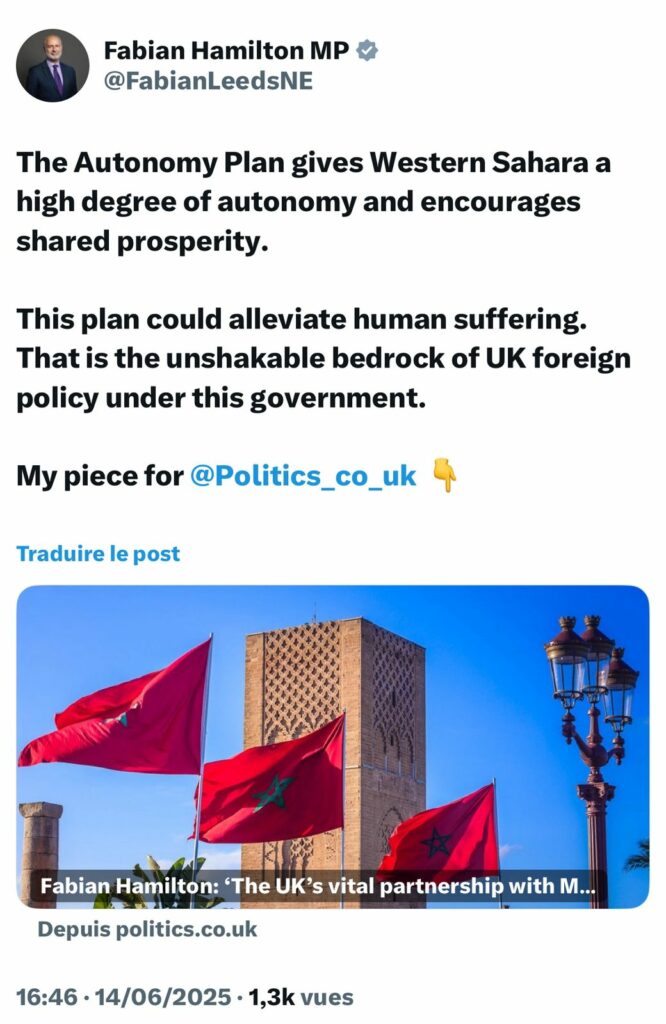 The article goes beyond the political and humanitarian aspects, shedding light on the growing dynamism in UK-Morocco bilateral relations, which have seen qualitative progress in trade, security, and education. Hamilton noted that Morocco is a strategic ally of the UK in combating terrorism and extremism, countering rising Russian influence in the Sahel region, and curbing illegal migration. He also highlighted Britain’s new investments in Morocco, including a UK commitment of £5 billion in funding for development projects, as well as major cooperation opportunities in health and infrastructure—particularly in preparation for the 2030 World Cup.
The article goes beyond the political and humanitarian aspects, shedding light on the growing dynamism in UK-Morocco bilateral relations, which have seen qualitative progress in trade, security, and education. Hamilton noted that Morocco is a strategic ally of the UK in combating terrorism and extremism, countering rising Russian influence in the Sahel region, and curbing illegal migration. He also highlighted Britain’s new investments in Morocco, including a UK commitment of £5 billion in funding for development projects, as well as major cooperation opportunities in health and infrastructure—particularly in preparation for the 2030 World Cup.
Hamilton concluded that the growing international recognition of Morocco’s Autonomy Plan—which includes key global players such as the United States, France, and Spain—demonstrates the maturity and realism of this proposal. It offers a pathway toward a final settlement of the conflict, away from ideological posturing. Morocco, he stressed, is a reliable partner and a responsible actor seeking peaceful solutions, while its adversaries continue to exploit the issue to serve regional agendas that entirely disregard the interests of the people of the region.


